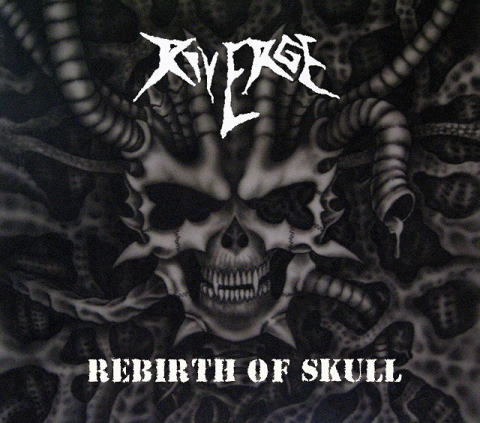Description
Human Quena Orchestra first took shape as a solo project from Ryan Unks, who had previously played guitar in the final lineup of the Pittsburgh metal band Creation Is Crucifixion. After moving from CIC, Unks began to work on a new project that would incorporate elements of black metal, crushing drone music, extreme psychotropic noise and psychedelic/krautrock influences into a sound that would be much heavier any of his previous projects. The first album from Human Quena Orchestra was released in 2007 on Daft Alliance; Means Without Ends was a disturbing, introspective slab of blackened industrial doom that stood out in stark contrast from the rest of the slow n’ low extreme doom scene, utilizing layers of harsh textured distortion and electronics to create a caustic form of monstrous doom that shared as much of industrial music’s cold, machine-like aesthetic as it did the ultra-slow riffage of the most extreme variants of doom metal. At the same time that the bands debut was taking shape, Unks was joined by another former member of Creation Is Crucifixion, Nathan Berlinguette (who was also a member of the dark ambient project M.Kourie and the deathdrone duo 5/5/2000). With the addition of Berlinguette’s skilled application of dark ambience and expansive soundscapes, Human Quena Orchestra began to move into even more textured territory which has culminated with the second HQO full-length, The Politics of the Irredeemable, a series of apocalyptic visions and epiphanies of endtime realization, prophetic screeds that look to a future rendered pustulent and war-stricken by the failed machinations of the human race, presented as six chapters that enter your consciousness through a delivery system of extreme industrial dread. The Politics of the Irredeemable is crushing and oppressive, a crawl through abstract fields of low-end sound that move from punishing blasts of ultra-heavy machine-doom and earth-shaking tectonic riffs, to thick fogs of black electronic ambience that shimmer with subsonic pulses and celestial drones, the presence of malevolent electricity crackling in the air around the lumbering, nightmarish electro-sludge monstrosity of the Human Quena Orchestra. And at the same time, there are passages of immense beauty on this album that lurk at the peripheries of HQO’s malevolent crush; the track “Aspirations” for instance, where pummeling slow-motion industrial percussions grinds in an infinite loop beneath a swirling nightsky of kosmiche synthesizers and heavenly, blissed-out ambience, the drums becoming like distant mortar blasts heard over the horizon as terrified screams ring out and stars fall dead from the skies. This is seriously apocalyptic deathmachine grind ambience.
Comes with three 1″ color buttons featuring artwork from the album.
REVIEW IN SIGNAL TO NOISE #54: Even more versed in the experience of abjection is Pittsburgh duo Human Quena Orchestra, whose The Politics of the Irredeemable (Crucial Blast) is a pretty stunning record. Their basic sonic elements are huge amp rattle, low-end metallic percussion that recalls Z’ev, and massively growling distorted bass. The hour-long album moves seamlessly through several tracks whose titles-“Progress,” “Mores 1-2,” “Aspiration,” “DeniaI1-2”-stand in bitterly ironic contrast to the malevolent feel of the music. The high-end feedback and midrange swells strain from the vertiginous bottom end, and are inevitably pulled back under. The nasty shrieks (very much like Dubin, above) seem to protest this endless cycle, as the sound relentlessly piles on, summoning images of thudding machines drilling into permafrost, endless grind, sheer hellish miasma. It’s brilliant stuff, agonizingly slow and grinding doom-but there’s enormous textural and dynamic range, even as the overall effect is like having your face ground into a brick wall.




